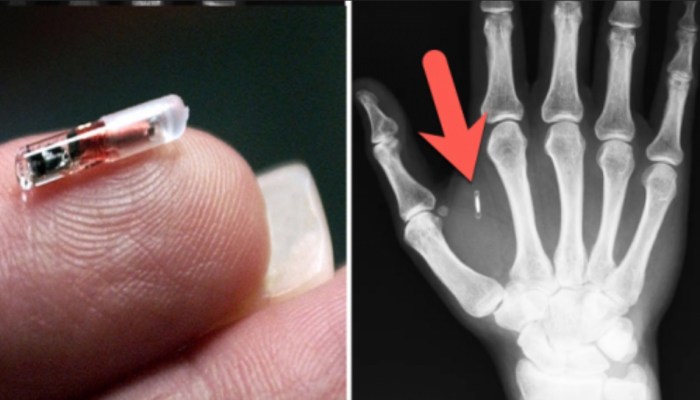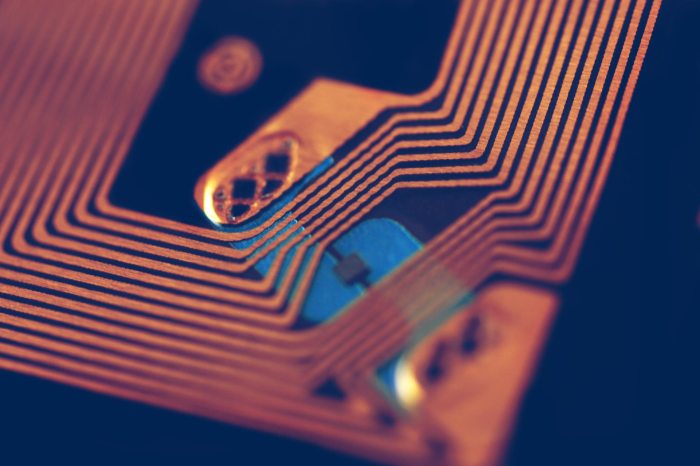Legislation could potentially limit how employers use implantable microchips, and this development has sparked a surge of interest and debate. This article delves into the legal implications, ethical considerations, and potential impact on employee privacy and autonomy.
The use of implantable microchips in the workplace raises a host of complex issues that require careful examination and thoughtful analysis.
Employer Implementation of Implantable Microchips

Implantable microchips are becoming increasingly popular among employers as a way to track employee attendance, productivity, and access to secure areas. While microchips offer several potential benefits, they also raise concerns about privacy, autonomy, and ethical considerations.
Potential Benefits of Microchip Implementation for Employers
- Improved employee tracking and attendance monitoring
- Increased productivity and efficiency
- Enhanced security and access control
- Reduced costs associated with traditional tracking methods
Potential Drawbacks and Concerns for Employers Regarding Microchip Implementation
- Privacy concerns and potential for abuse
- Employee resistance and ethical considerations
- Legal and regulatory challenges
- Technical limitations and potential for malfunction
Legal Implications and Considerations

The use of implantable microchips in the workplace raises a number of legal implications. Legislation could potentially limit how employers use these devices, protect employee privacy, and ensure responsible implementation.
Examples of Existing or Proposed Legislation Related to Microchip Use in the Workplace
- The California Fair Employment and Housing Act (FEHA) prohibits employers from discriminating against employees based on medical condition, which could include implantable microchips.
- The European Union’s General Data Protection Regulation (GDPR) requires employers to obtain explicit consent from employees before implanting microchips.
- Several US states have proposed legislation to restrict or ban the use of microchips in the workplace.
Potential Impact of Such Legislation on Employer-Employee Relationships, Legislation could potentially limit how employers use implantable microchips
- Legislation could limit the ability of employers to use microchips for tracking and monitoring purposes.
- Employees may have increased protection against privacy violations and discrimination.
- Employers may need to implement alternative tracking methods that comply with legal requirements.
Employee Privacy and Autonomy
The use of implantable microchips in the workplace raises concerns about employee privacy and autonomy. Employees may feel that microchips infringe on their right to bodily integrity and privacy.
Potential Impact on Employee Autonomy and Bodily Integrity
- Employees may feel coerced into implanting microchips to maintain their jobs.
- Microchips could potentially be used to track employees’ activities outside of work hours.
- Employees may worry about the potential for microchips to be hacked or misused.
Measures that Could Be Taken to Protect Employee Privacy While Allowing for Responsible Microchip Use
- Employers should obtain explicit consent from employees before implanting microchips.
- Microchips should only be used for legitimate business purposes.
- Employees should have access to their own microchip data.
- Employers should have clear policies and procedures in place to protect employee privacy.
Ethical Considerations: Legislation Could Potentially Limit How Employers Use Implantable Microchips

The use of implantable microchips in the workplace raises a number of ethical considerations. Employers must balance their desire for increased efficiency and security with the privacy and autonomy of their employees.
Potential for Discrimination or Coercion Related to Microchip Use
- Employers may discriminate against employees who refuse to implant microchips.
- Employees may feel pressured to implant microchips to keep their jobs.
- Microchips could be used to track and monitor employees in a way that is discriminatory.
Balance Between Employer Interests and Employee Rights
Employers have a legitimate interest in using microchips to improve efficiency and security. However, this interest must be balanced against the privacy and autonomy rights of employees. Employers should carefully consider the ethical implications of microchip use and implement policies that protect employee rights.
Alternative Tracking Methods

There are a number of alternative tracking methods available to employers that do not require the use of implantable microchips. These methods can provide similar benefits to microchips while respecting employee privacy.
Comparison of Alternative Tracking Methods to Implantable Microchips
| Method | Advantages | Disadvantages |
|---|---|---|
| RFID cards | Easy to use and implement, relatively inexpensive | Can be lost or stolen, limited range |
| Biometric scanners | Accurate and secure, can be used for multiple purposes | Can be expensive to implement, potential for false positives |
| GPS tracking devices | Can track employees in real time, can be used for both indoor and outdoor tracking | Can be bulky and uncomfortable to wear, privacy concerns |
Potential for Alternative Methods to Address Employer Concerns While Respecting Employee Privacy
Alternative tracking methods can provide employers with the benefits of microchips without the associated privacy concerns. By carefully considering the advantages and disadvantages of each method, employers can choose a tracking solution that meets their needs while respecting employee rights.
Questions and Answers
What are the potential benefits of microchip implementation for employers?
Microchip implementation can offer employers benefits such as enhanced security, streamlined access control, and improved efficiency in certain industries.
What are the privacy concerns raised by the use of implantable microchips in the workplace?
Privacy concerns include the potential for unauthorized data collection, tracking, and surveillance, as well as the risk of data breaches and misuse.
How could legislation impact employer-employee relationships?
Legislation could potentially limit the use of implantable microchips in the workplace, which could impact employer-employee relationships by restricting employers’ ability to implement such technology.